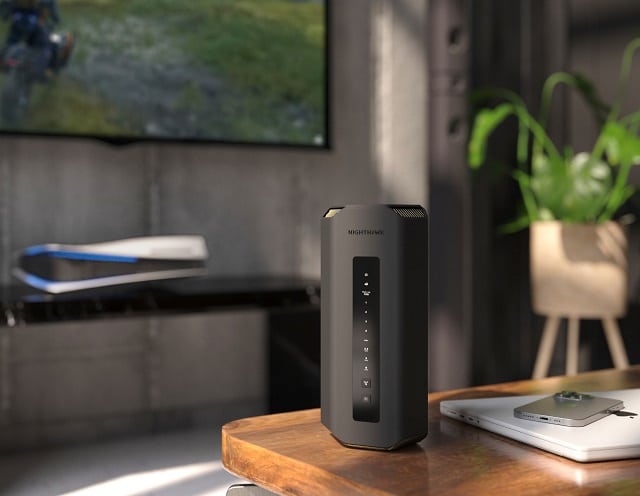
Mid-sized businesses lack cybersecurity expertise
A new study reveals that 61 percent of mid-sized businesses don't have dedicated cybersecurity experts in their organization.
The research from managed security platform Huntress also shows 24 percent of mid-sized businesses have suffered a cyber attack or are unsure if they have suffered a cyber attack in the past year.

Zero Trust Authentication aims to boost security
Growing numbers of cyberattacks have highlighted the shortcomings of passwords and legacy multi-factor authentication systems.
Beyond Identity today launches Zero Trust Authentication, which has been developed in response to the failure of traditional authentication methods. It includes components such as Beyond Identity's risk scoring and continuous authentication capabilities to significantly enhance the level of protection offered.

The challenge of securing APIs [Q&A]
Technology continues to advance at an unprecedented rate. The development and use of Application Programming Interfaces (APIs) being a particularly notable example.
The latest Salt Labs State of API Security report found that overall API traffic increased 168 percent over 12 months, with API attack traffic increasing by 117 percent in the same time period. Perhaps understandably, many CISOs are struggling to keep up.

NETGEAR unveils Nighthawk RS700 Wi-Fi 7 router
Most consumers aren't yet on Wi-Fi 6, let alone the newer Wi-Fi 6E, but that isn't stopping manufacturers from pushing things forward even further with Wi-Fi 7. Following TP-Link's lead from late last year, today, NETGEAR unveils its upcoming Wi-Fi 7 router.
Called "Nighthawk RS700," this tri-band Wi-Fi 7 router is powered by a Broadcom BCM6726/3 SoC. There are eight internal antennas, a 10G WAN port, and a 10G LAN port. You also get four Gigabit LAN ports and a USB-A port. And yes, such a cutting-edge router carries a very hefty price tag.

Google Workspace gains generative AI
Generative AI is very much flavor of the month at the moment thanks to tools like ChatGPT. Now business tool Google Workspace is getting in on the act with new features to help users create drafts, proofread, generate images and more.
Initially the new AI features will be in Docs and Gmail. The company is keen to stress that users will remain in control, AI will make suggestions that you're able to accept, edit, and change.

New platform helps uncover vulnerable secrets
Complex software today includes components that rely on digital authentication credentials commonly referred to as secrets, which include tools such as login credentials, API tokens, and encryption keys. While critical for the software to function, managing secrets across every component of code is a challenge that can result in secrets being left vulnerable.
Supply chain security company ReversingLabs is launching a new secrets detection feature within its Software Supply Chain Security (SSCS) platform.

95 percent of business leaders expect AI/ML investments to boost revenue
A new survey of 100 chief data officers (CDOs) and chief data analytics officers (CDAOs) at companies with $1B+ in revenue shows that 95 percent say their company leadership expects investments in AI and ML applications will result in a revenue increase.
The study for Domino Data Lab, carried out by Wakefield Research, shows 67 percent are adopting a more offensive data policy seeking to drive new business value with analytics, ML and AI applications.

Consumers turn to biometrics as they struggle to remember passwords
People are struggling to recall an ever-growing number of passwords, with 51 percent of respondents to a new study by Entrust saying they reset a password at least once a month because they can't remember it.
Even more alarming, 15 percent of users who responded reset passwords at least once a week. It's no surprise then that given the option between biometrics or a password, 74 percent of respondents will choose biometrics half the time or more and a third will always choose biometrics when available.

Want cheap broadband? Head for Sudan
Analysis of data on over 3,700 broadband packages from 219 countries around the world shows that if you want the cheapest deal you should consider moving to Sudan.
The study by Cable.co.uk shows Sudan offers the world's cheapest broadband, with an average cost of $2.30 per month. By contrast another African nation, Burundi, is the most expensive place in the world to get fixed-line broadband, with an average package price of $383.79 per month.

Harnessing the power of data in a hybrid cloud environment
In an increasingly crowded business environment, businesses need to stay at the forefront of innovation to get ahead. And the best way for companies to do that is by looking inward -- specifically at their own, preexisting data. Data is every business’ most valuable asset, holding insights that can unlock undiscovered potential. Whether you’re building out fraud detection or working to gain a competitive advantage with new market opportunities, the artificial intelligence (AI) and machine learning (ML) training engines that drive this kind of innovation are only as effective as the data they are given.
Where challenges arise in this process is with the management of data flows. In the past, data has been kept primarily on highly secure, on-premise systems. But more businesses have since been migrating operations to cloud systems, with many opting for a hybrid approach. Research firm Forrester reported that more than 94 percent of U.S. enterprise decision-makers are using at least one type of cloud deployment, with the majority being hybrid or multi-cloud. By modernizing mainframe systems and implementing the right data intelligence tools enterprise leaders can take advantage of all their company data without exposing it to undue threats along the way.

Over 700 million credentials exposed and 22 million devices infected in 2022
The latest Identity Exposure Report from SpyCloud shows that last year its researchers recaptured 721.5 million exposed credentials from the criminal underground, and found over 22 million unique devices infected by malware.
Of the exposed credentials recovered by SpyCloud, roughly 50 percent came from botnets, tools commonly used to deploy highly accurate information-stealing malware. These infostealers enable cybercriminals to work at scale, stealing valid credentials, cookies, auto-fill data, and other valuable information to use in targeted attacks or sell on the darknet.

Microsoft is bringing integrated MFA to mobile Outlook and widening the availability of the new Outlook for Windows app
A couple of recent entries on the Microsoft 365 roadmap shed light on what is in store for Outlook. Over the coming weeks, Microsoft has big plans for both the mobile and desktop versions of its email client.
Starting this month, Outlook security is being boosted thanks to the arrival of built-in multi-factor authentication (MFA). And next month, a larger number of Windows users will have access to a preview version of a completely new Outlook app.

Microsoft is rolling out video filters to Microsoft Teams
Microsoft has announced the general availability of video filters in its meeting software, Teams.
The arrival of filters complements the existing AI-powered options to change backgrounds and improve the appearance of videos. To deliver the new filters, Microsoft has created a dedicated app called Custom Filters which can be used to add animated frames to video, tweak appearance, and more.

FinTech can enable older adults' financial freedom
The 21st century has given people new ways to manage their everyday affairs using advanced technology. Money management is one of the areas made more accessible because of this. Financial technology -- more commonly known as fintech -- typically refers to apps that streamline managing financial accounts and transactions.
While most fintech apps target the younger generation, older adults can also greatly benefit from learning how to use fintech.

People first, technology second -- Why SaaS developers should embrace human-centered design
The recent fascination with AI, fueled by the release of ChatGPT and Google and Bing trying to catch up with their own language models, has SaaS developers and designers intrigued by the possibilities of what they can do with the burgeoning technology.
But the AI explosion in progress underscores a question that must be asked about any innovation: What place do humans hold in the development of technology intended to benefit them?


